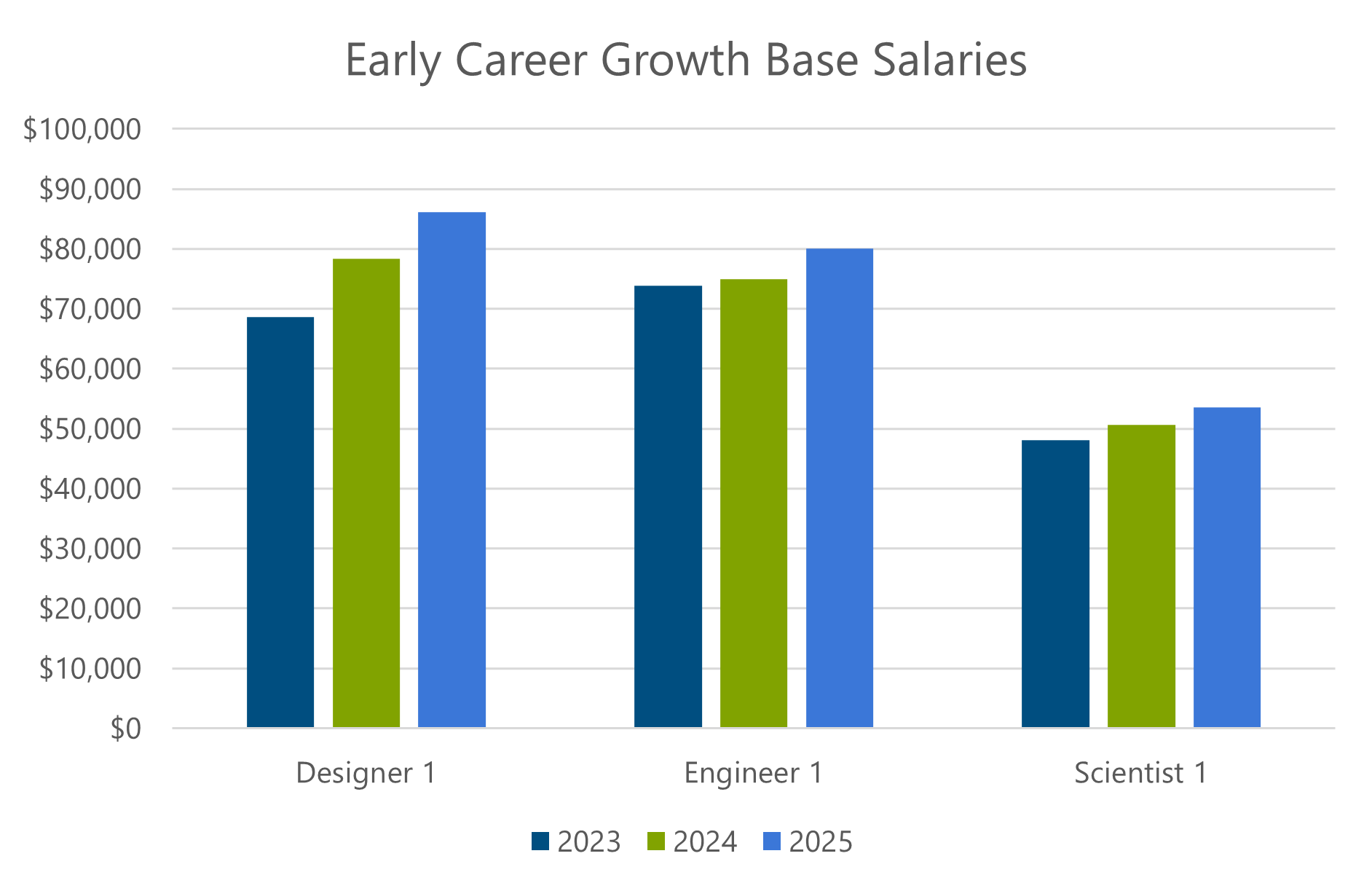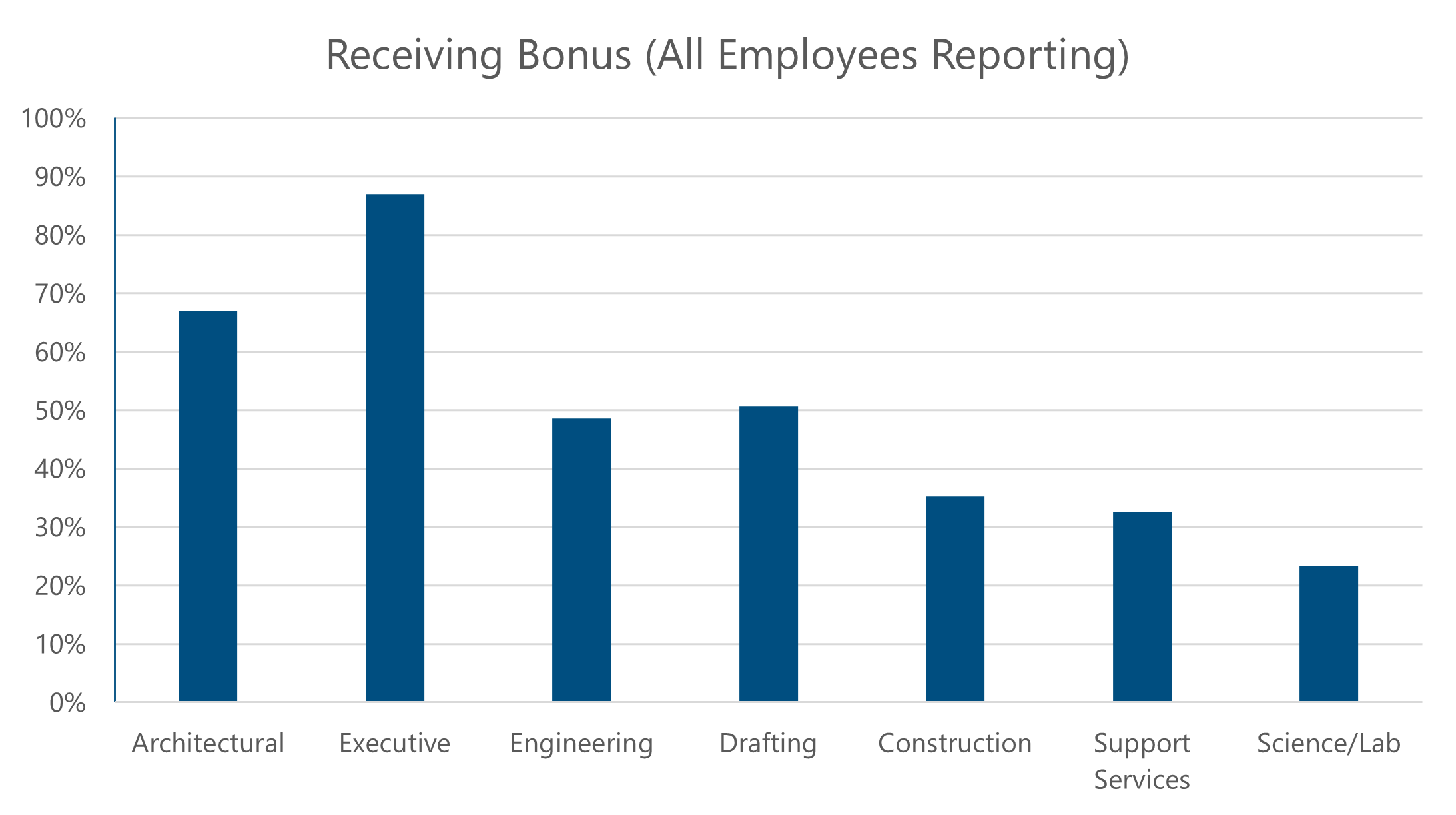
Advisor Blog | Nov 2025
2025 AEC Compensation Outlook
Architecture, Engineering, and Construction firms can use compensation programs as a competitive advantage to recruit and retain top-tier leadership.
Compensation strategies in the architecture, engineering, and construction (AEC) industries are evolving to meet a rapidly transforming labor market. Pearl Meyer’s recently published 2025 AEC Compensation Surveys—spanning seven specialized modules across architectural, construction, drafting, engineering, science/lab, executive, and support services—provide timely market data to help companies deliver pay packages that attract and retain the best talent. Overall, the 2025 survey data show steady base salary growth paired with an expanding use of variable pay, reflecting how firms are adapting their compensation strategies to attract, retain, and motivate high-performing talent.
Base Pay Growth and Compression at Early Career Levels
Across nearly every AEC discipline, base salaries continue to rise, reflecting strong competition for technical and design talent. Entry-level and early-career professionals, particularly in drafting, engineering, and science/lab roles, are receiving higher base salaries as companies narrow the gap between new hires and seasoned staff to address recruitment challenges and turnover risk. Firms understand that early investment in skilled talent is essential to sustaining project delivery capacity and developing future leaders. However, this pay compression underscores the importance of maintaining clear career progression and merit-based increases to preserve internal equity and motivation.

Executive Compensation: Aligning Pay with Performance
At the leadership level, traditional perquisites such as company vehicles, professional license reimbursement, and club memberships remain prevalent, with approximately 75% of AEC leaders receiving at least one such benefit. Yet the broader trend points toward performance-tied rewards and ownership-based incentives, which reflect the sector’s commitment to leadership pay alignment.
Competition for proven executives remains intense, driving many organizations to differentiate their compensation packages with unique incentives and career advancement opportunities to attract and retain experienced leaders. This shift points to a growing recognition that compensation strategies for senior leaders must balance both experience and growth potential.
Firm Size and Market Dynamics Still Matter
The 2025 survey data reinforce that company size and market segment remain key predictors of pay:
- Employees at firms exceeding $300 million in annual revenue earn 15–25% more than peers in smaller organizations for comparable roles.
- The compensation gap is particularly pronounced for business development and project management functions, where revenue responsibility drives larger variable awards.
- In contrast, smaller firms remain more likely to offer flexible benefits, hybrid work arrangements, or personalized retention bonuses in lieu of higher fixed pay.
Bonus Pay Across All Modules
As expected, executives were the most likely employee group to receive bonus pay (87%), while science and laboratory employees were least likely to receive a short-term incentive award (23.4%). Short-term incentive structures help companies incentivize excellence and remain agile to respond to shifting labor market demands.
Below is a chart showing the percentage of employees that reported receiving bonus pay across all 2025 AEC Compensation Modules (bonus paid out in 2025).

The Bottom Line: 2025 Rewards Are Evolving
The 2025 AEC Compensation Surveys reveal an evolving industry. Firms are refining their compensation strategies to attract and retain scarce talent, engage employees, and increase quality and productivity for a growing number of complex projects.
AEC firms can use compensation programs as a competitive advantage to recruit and retain top-tier leadership. By differentiating their compensation packages and career development pathways, firms can stand out in a crowded talent marketplace. Innovative approaches such as offering equity participation, accelerated leadership tracks, and customized incentives demonstrate a commitment to recognizing individual achievements while fostering long-term engagement.
Pearl Meyer publishes seven AEC Survey modules, each designed to provide targeted insights for industry professionals. To purchase any module, follow the links below to visit our survey catalog and complete your transaction quickly and securely.
For information on participating in next year’s survey, contact survey@pearlmeyer.com.


